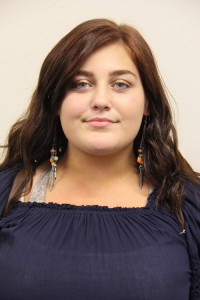By Aaliyah Lannerd
Image via Flickr
Editor’s Note: During the election season, sexual assault was elevated into the national discussion after a tape surfaced of now-President Donald Trump boasting of “grabbing her by the p**y.” While many of his supporters disregarded his language as “locker room talk,” others across the country were appalled to learn a presidential hopeful would talk about sexual assault in such a manner. Two weekends ago, millions of women took to the streets in Women’s Marches across the country and worldwide, proclaiming a message that “women’s rights are human rights.” Below, We’Ced’s youth reporter, Aaliyah Lannerd, keeps the conversation going.
According to the Rape, Abuse, and Incest National Network (RAINN), one in five women, and one in 17 men will be a victim of sexual assault in their lifetime.
As a young woman, I have seen how my peers and our wider society view rape. It is often seen as taboo to discuss and justified with widely-held beliefs that “boys will be boys.” Unfortunately, we tend to push the topic aside because of the discomfort it brings. Our schools do not adequately educate students about sexual assault and many parents are hesitant to speak to their children about it.
Alarmingly, seven out of ten sexual assaults are perpetrated by someone the victims know. When it comes to juvenile victims, 93 percent know the perpetrator.
Now that we have a president who has boasted of sexual assault, it’s up to youth and our adult allies to take a stand and say that rape and sexual assault are real issues affecting our communities, and victim blaming is not acceptable. By keeping this topic taboo, and fighting harmful stereotypes and misconceptions, we continue to put young people at risk.
Victim blaming is one of society’s most harmful patterns when it comes to rape or sexual assault. People say to the victim things like “What were you wearing?” “Were you drunk?” “You probably led him/her on” or “I told you not to go running in the night!” But victim blaming is NOT okay.
Every 98 seconds an American is sexually assaulted, creating 321,500 victims of rape and sexual assault each year in this county. That is 31,507,000 seconds we spend pushing rape to the side as a society instead of having real conversations that could break this devastating cycle.
Sometimes the most uncomfortable topics are the most important ones. I want to continue to keep the conversation on preventing sexual assault going through sharing a poem I recently performed at a Youth Media conference in Sacramento.
Her Body
The invisible chains that wrap around her hands
The dirty hands that cover her mouth and
Spread her legs because rape isn’t rape if you’re married to him
Society says your little black dress meant yes
Cover your body, be pretty, stay modest.
“No means Yes, and Yes means Anal!”
Rape is the mascot of every kappa and holds every title
You flicked your tongue and it turned him on
So he led you to the back of an alley so you could get it on
Only she was screaming “no!” while you screamed “yes!”
Multiple people who passed the alley heard her screams
They’ve always been taught not to snitch
Little did they know he has done it to 19 other girls
Who flicked their tongues and turned him on
They will never live in peace only in fear
The marks have left her body
But her memory of that night is still their
Never able to forget
Every guy she meets who says “Yes!”
She will only hear his words
And every time she says “No!”
She will only hear the regret that was entwined in her words
Her words didn’t matter it only hurt her
When you forced yourself into her petite body
Gripped her skin and tore her soul from her body
Her body was no longer her body
Just a reminder of what you did to her body
But her little black dress did not mean yes and it never will.
If you are a victim to rape or sexual assault, you can call 1-800-656-HOPE (4673) for help. Remember that it is not your fault.

Two years ago, Sixteen-year-old Aaliyah Lannerd joined We’Ced as a youth reporter. Fueled by her love for writing, she believes every person has a powerful story and hopes to one day become a great story-teller. Among her interests is a strong inclination towards social justice issues, in particular, women’s rights and police brutality. Aaliyah is as passionate about activism as she is about journalism. In the future, she also hopes continue serving her community, and one day, attend UC, Berkeley.
 Translate
Translate
